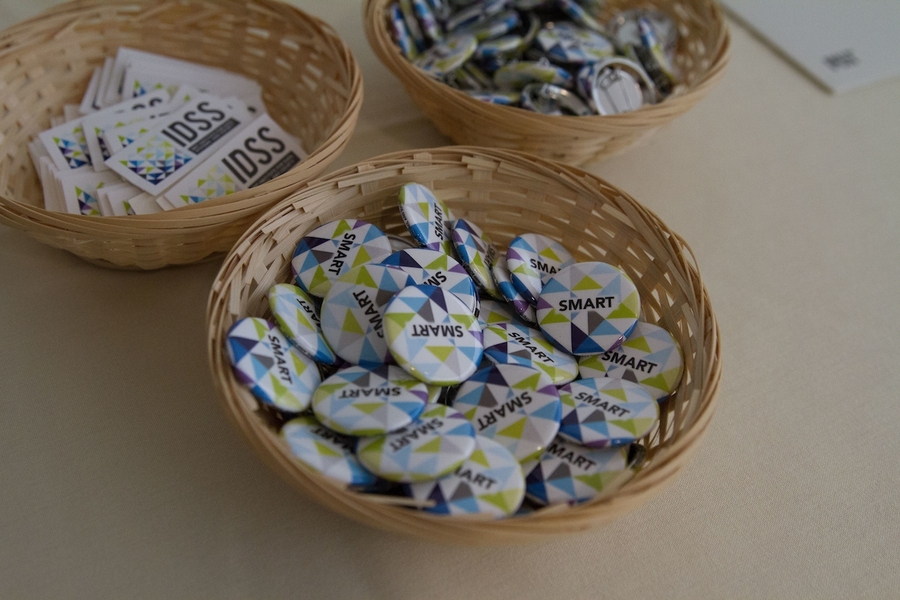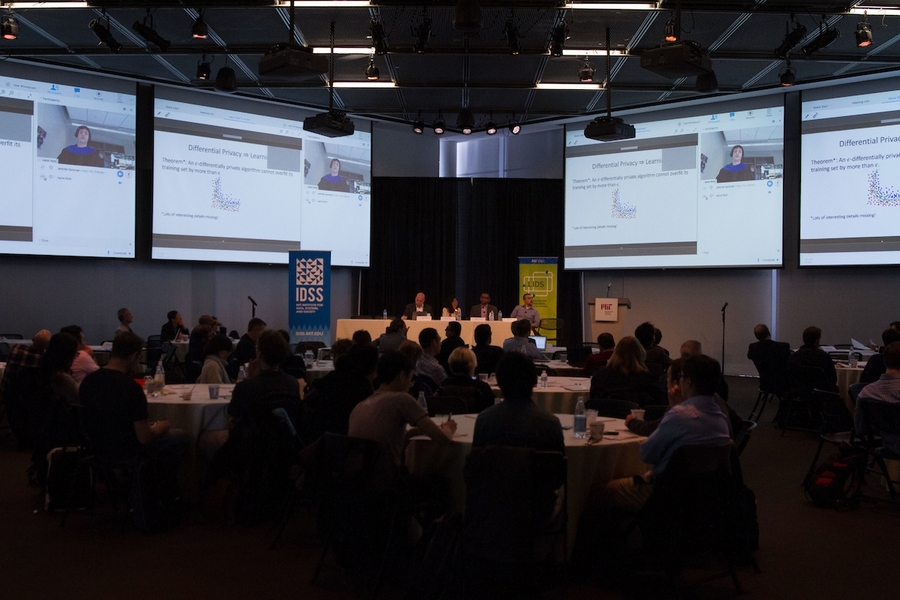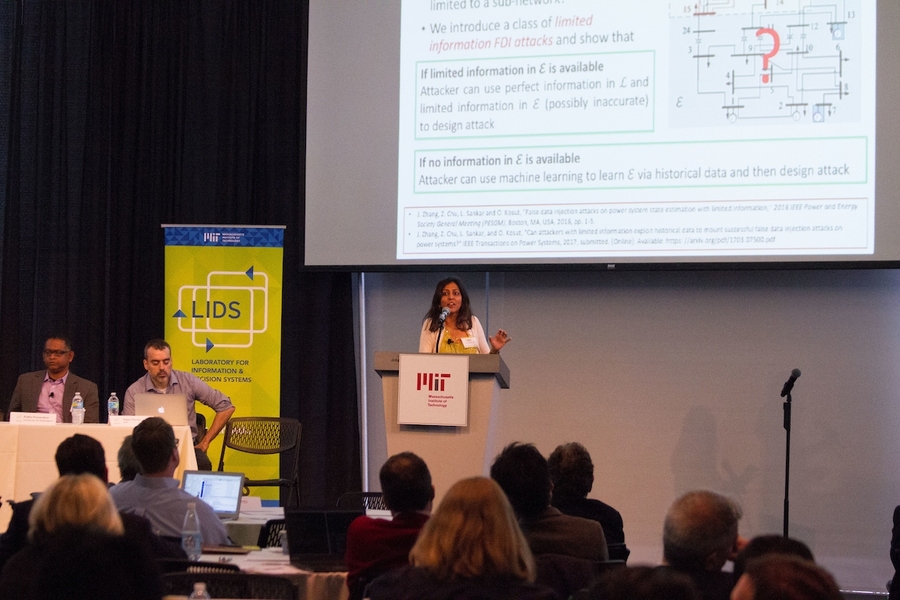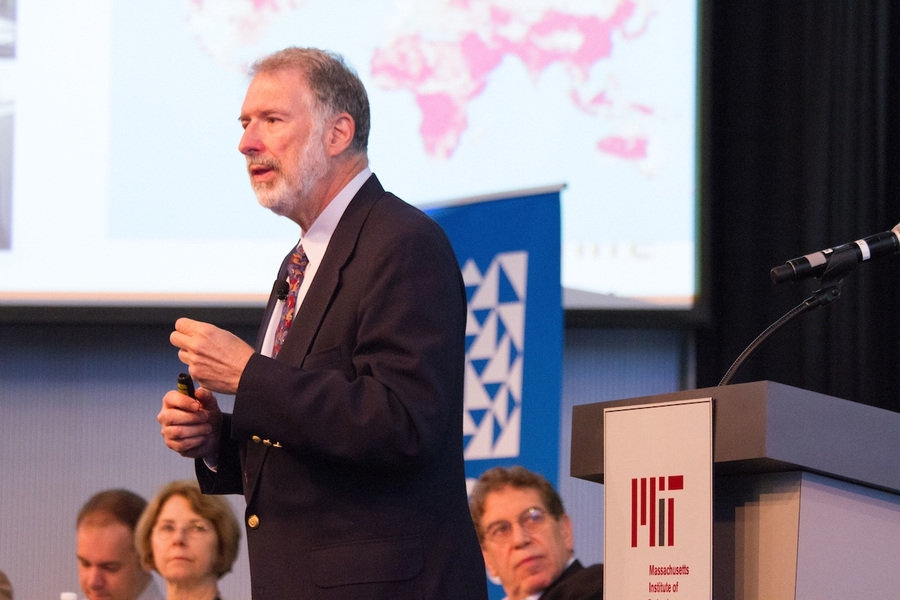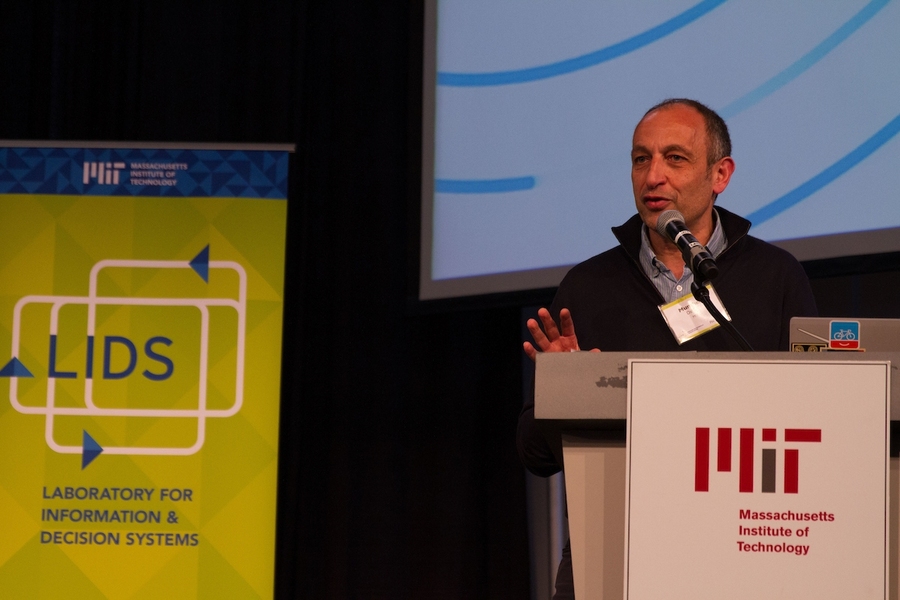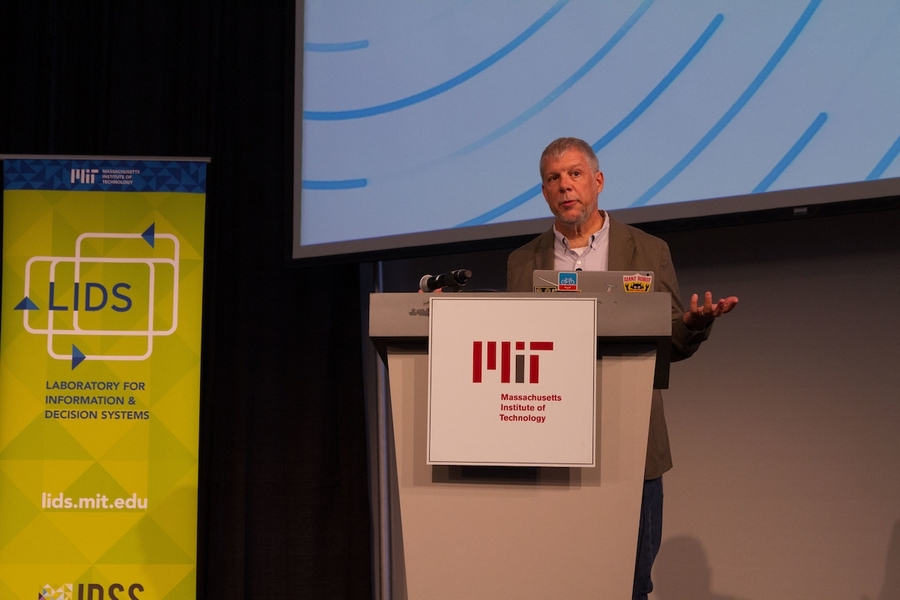Data can reveal valuable insights about the ways humans interact with their urban surroundings, helping to determine the types of services and systems they need and how those services and systems should work. Transportation, the electric power grid, and other services people rely upon can become more automated and more responsive — and ultimately smarter — through data science approaches.
Those ideas were at the center of the Smart Urban Infrastructures Workshop, which was held May 11-12 at the Media Lab. The event was hosted by the Laboratory for Information and Decisions Systems (LIDS), which is both the longest-running research laboratory at MIT and the major research lab of the MIT Institute for Data, Systems, and Society (IDSS).
“Thanks to advances in technology, we see more and more smart services,” said Asuman Ozdaglar, the Joseph F. and Nancy P. Keithley Professor in Electrical Engineering and head of the Department of Electrical Engineering and Computer Science. “These smart services take many forms and include increasingly more platforms for sharing resources.”
The conference was organized around six central themes related to smart services: security and privacy; smart cities and communities; communications and the internet of things; transportation services and platforms; autonomous transportation; and smart grid and energy services. The first day included a student poster session, while the second day featured a keynote talk from GE Digital Vice President Peter Marx, who also drew from some of his past experiences in the public sector as chief technology officer for the City of Los Angeles.
Speakers on the Security and Privacy in Smart Services panel shared a variety of perspectives on current privacy challenges. Daniel Weitzner, founding director of the MIT Internet Policy Research Initiative and principal research scientist at the Computer Science and Artificial Intelligence Laboratory (CSAIL), discussed the need to understand the significance and meaning of privacy in people’s lives in order to create effective policies. He explored the complexity that emerges when people try to define exactly what privacy is in terms of how people perceive and value it.
“It’s tempting to have a single, formal definition of ‘privacy,” he said, “but we can’t do that. Privacy means different things to different people.”
Lalitha Sankar, assistant professor in the School of Electrical, Computer and Energy Engineering at Arizona State University, addressed privacy and security in the context of power systems — including looking at the importance of cybersecurity in maintaining the operations of smart cities. She cited the example of a major cyber attack that disabled a third of the Ukrainian power grid to illustrate a case in which “the control was bypassed from the human in the loop,” and where the cyber system itself was unable to identify the problem.
During the panel session on Smart Cities and Communities, Mark Gorenberg, the founder and managing director of Zetta Partners, talked about strategies for making communities more energy-efficient and more connected by using data related to local preferences and needs. Fellow panelist Glenn Ricart of US Ignite emphasized the importance of “civic partnerships,” including work with volunteers and universities.
Amy Glasmeier, professor in the MIT Department of Urban Studies and Planning, focused on the ongoing challenge of providing more access to smart services for wider segments of the population.
“How do we change and broaden the demographics [of people using smart systems]?” Glasmeier asked. In designing smart systems, she said the key question needs to be: “What is the problem we are trying to solve, and for whom?”
In the panel on Communications and the Internet of Things in Smart Cities, Veniam CEO and founder João Barros discussed some communications applications that can improve cities, such as having vehicles share software updates.
“Many applications allow you to reduce traffic if vehicles can communicate with each other,” he said.
Iyad Rahwan, a professor at the Media Lab and IDSS affiliate faculty member, presented some of his research on the complex ethical dilemmas of autonomous vehicles. Human drivers make quick, intuitive, and often high-stakes decisions to assess relative risk and act accordingly. Although efforts toward building these capabilities in cars are well underway, designing such complex systems presents great challenges, he said.
The Smart Grid and Energy Services panel also highlighted the human component of smart systems. Marija Ilic, an IDSS visiting professor, talked about the need to think about power grids as “data-enabled, socio-ecological systems.” Ilic and other panelists discussed the importance of making it easy for consumers to participate in decisions about energy usage — particularly by using data to identify certain tasks and decisions and then automate them.
